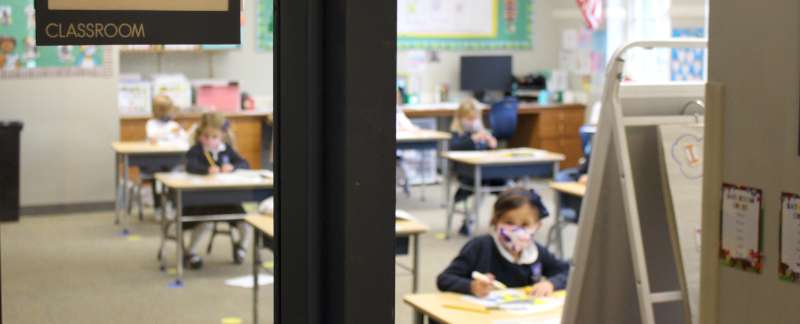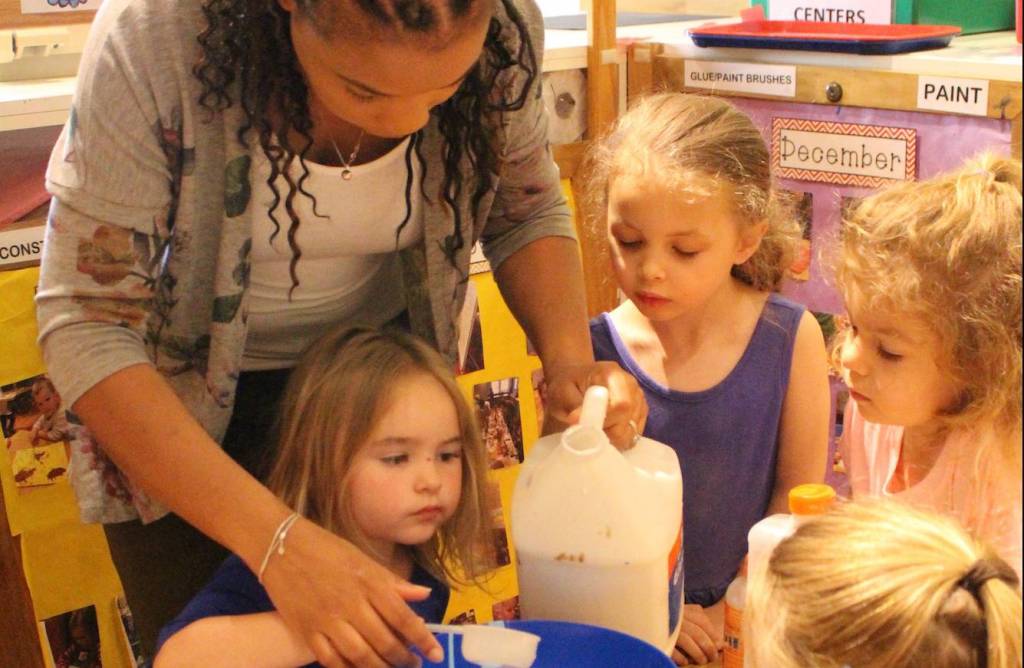Five (5) Summertime Things You Might Already Be Doing That Equal Learning!
Did you know there are many summertime activities that you might already be doing that can help your children learn and succeed in school and beyond?!
Families with young children take advantage of summer to travel, enjoy extended play, outdoor activities, and fun family time. Most of us grew up with that tradition, and we are eager to continue with our own families. Often, however, the pressure to sign up for the next innovative music class, sporting activity, Math Intensive courses, or more, can usurp our relaxing summer! But did you know that your child is already benefiting from so much learning already happening in your traditional summer activities? Consider these five common summertime options and the ways they help our children succeed in school and beyond.

1. Visit the Playground! Climb, climb, climb! Climbing (for all ages) engages the brain and enables children to develop spatial awareness, hand-eye coordination, and working memory. Studies link crawling and climbing to brain development that directly impacts reading skills! Climbing increases core strength, making it easier for students to sit for periods of time, and aids in learning to write. Your kids are also learning appropriate risk assessment and developing confidence!
2. Head to the Shore – Encourage and participate in building sandcastles! Creating a sandcastle kingdom with your children helps to develop problem-solving skills, fosters creativity and storytelling (all-important in developing reading comprehension!), and builds fine-motor skills and promotes sensory exploration. Add to the fun and skill-development by incorporating drippy castles: (How to Make a Drippy Castle). **
** Here are two children’s books that will inspire your sandcastle adventures: The Sandcastle that Lola Built by Megan Maynor, a great place to start, and appealing to young children! Robert Munsch’s book, The Sandcastle Contest, has amazing illustrations, is full of fun and silly family adventures, and will be enjoyed by children of all ages!
3. Pull Out the Board Games! Summer is the perfect time to begin a family game night tradition. There are endless, amazing games for all ages, with tremendous skill and social development opportunities! Playing games that include “winning” and “losing” can be challenging with young children. But, don’t lose heart! It is worth the patient trial and error (and occasional orchestrated strategic “win” for your little one). Learning to work together and accept losses is an important social skill, and good to practice in the safety of home before the first Kindergarten P.E. class! Many board games incorporate counting forward or backward, sequencing numbers or shapes, spatial problem-solving, geometric pattern formation, strategic thinking, and more! Family game time can strengthen family bonds and provide fun without screens. Here’s a list of tried-and-true games for various age levels that we highly recommend:
Age 3+ Hi Ho Cherry-o (lots of counting, an oldie but goodie.)
Age 3+ Feed the Woozle (silly fun that includes counting and fine motor skills.)
Age 4+ Chutes & Ladders (another classic promoting counting to 100.)
Age 4+ Zingo 1-2-3 (learn to associate digits with images and text Bingo-style!)
Age 5+ Trouble (classic dice-counting board game)
Age 5+ Qwirkle (easy game combining strategy and pattern recognition.)
Age 6+ Connect 4 (can play this strategy game for hours!)
Age 7+ Battleship (because they love to sink yours!)
Age 8+ Rummikub (classic strategy game with lots of cool math.)
4. Up-end Read Aloud Time! – Most families read stories at bedtime year-round. Why not change it up? Pitch a table tent fort under the dining room table and have a lunchtime, read-aloud picnic, or grab a blanket and a to-go breakfast and head out to the backyard, deck, or front stoop armed with your child’s choice of book! Countless studies point to important pre-reading skills that are built in children when they listen to books read aloud. And yes, do ALL the voices! Ask questions! It’s fun to talk about how books make us feel. Ask about the beginning, middle, and end of the story. Or, “Who is your favorite character, and why?” Or, “What do YOU think will happen next?” Be sure to engage with the illustrations. Notice things about the pictures together. Learning to talk about stories builds reading awareness and comprehension skills. Schedule a weekly library time with your child and be sure to tap into your library’s children’s librarian! He/she will have so many wonderful recommendations and can point to books that match your child’s interest or are good for early readers.
5. Create “Talk Time” at Dinner – Children who grow up in homes where they are exposed to rich language and conversations have a tremendous advantage in school and beyond. Building vocabulary and learning to make connections, as well as developing the ability to read appropriate “social cues,” stem from early exposure to oral language. Consider developing dinnertime conversation habits. Many families do this naturally. Consider challenging yourself to be intentional. It will not only help your child learn, but it will also grow family bonds and reinforce your love and care for your child. Start by collecting some easy conversation-starter questions that work for your family. Some examples are:
“What was the best part of your day?”
“What was something funny that happened today?”
“How were you a helper today?”
“Did someone help you today?”
“What are you thankful for today?”
“Did you notice anything wonderful outside today?”
For each question, ask further “why” questions to help your child learn to develop his/her thoughts and feelings. And be sure to model answering these questions yourself!
Learning and play go hand-in-hand! Lean into the wonderful, open-ended possibilities that the summer holds and watch your child grow and learn right before your eyes!




